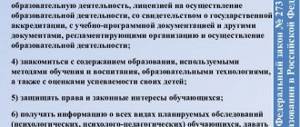Legal representative of the child: who is he?
Most often, the legal representative of a minor is his parents – father and/or mother, included in the child’s birth certificate.
Parents represent the interests of the minor in all instances until the child turns 18 years old.
A trustee or guardian may also act as a legal representative.
The legal representative of the child is obliged to raise him, take care of his physical and mental development, and health.
He is obliged to ensure that the child receives a general education, and must also protect the rights and interests of the minor in various authorities.
Who is the legal representative of a minor in criminal proceedings?
According to Art. 48 of the Criminal Code of the Russian Federation in criminal cases committed by minors, the child’s legal representatives are involved in participation in the criminal case . These may be parents, guardians, trustees or adoptive parents.
The legal representatives of a child accused of a criminal act are allowed to participate in the criminal process based on the decision of the investigator.
The child’s representative is obliged to attend meetings, participate in the interrogation of the accused, in the trial (to get acquainted with the case materials, bring complaints, petition, challenge, provide evidence, etc.).
If the court determines that the legal representative is not acting in the best interests of the child, then the judge may decide to remove him from participation in the trial and assign another representative to the minor child defendant.
LEGAL REPRESENTATION IN THE INVESTIGATION OF CRIMES AGAINST MINORS
To protect the rights and legitimate interests of the suspect (accused), who is a minor, his legal representatives or other representatives are involved in mandatory participation in the case in accordance with criminal procedure legislation (Article 45 and Article 48 of the Criminal Procedure Code of the Russian Federation (hereinafter - Code of Criminal Procedure of the Russian Federation).
In recent decades, much attention has been paid to the problems of increasing the effectiveness of the participation of legal representatives. The issue of protecting the rights of minors during the investigation of criminal cases is of particular importance; issues such as the interrogation of minor suspects, the procedural status of their legal representatives and other issues deserve special attention.
Despite the apparent elaboration of attracting legal representatives to participate in criminal proceedings, there are still many controversial issues that determine the relevance of the chosen research topic.
Determination of increased requirements on the part of legislative and higher judicial bodies of state power (Resolution of the Plenum of the Supreme Court of the Russian Federation dated 01.02.2011 No. 1 “On the judicial practice of applying legislation regulating the specifics of criminal liability and punishment of minors”) for the effective conduct of preliminary investigations in cases of crimes for minors is aimed at ensuring a comprehensive, complete and objective establishment of the circumstances of the crime committed by a teenager, identifying the causes and conditions that contributed to its commission, as well as strengthening the educational impact of criminal proceedings [6, p. 83]; is expressed as follows:
— double representation of the interests of minors in court (defender, legal representative);
- specificity of the subject of proof; segregation of juvenile cases;
- additional issues decided by the court when making a decision (Article 430 of the Code of Criminal Procedure of the Russian Federation);
— confidentiality of consideration of cases (Article 241 of the Code of Criminal Procedure of the Russian Federation) [5, 114].
Thus, one of the features of proceedings in cases of crimes committed by minors is the involvement of the legal representative of the minor in the case.
Legal representation in criminal proceedings is a set of legal norms that regulate social relations arising, on the one hand, between the legal representative and the person he represents, on the other hand, the legal representative and other participants in the process, and aimed at the implementation, protection and protection of the rights of a participant in criminal proceedings who does not have full procedural capacity [8, p. 93].
Paragraph 12 of Article 5 of the Code of Criminal Procedure of the Russian Federation determines the list of persons who may be the legal representatives of a minor suspect accused in the investigation of crimes. These are parents, adoptive parents, guardians, trustees, as well as representatives of institutions and organizations and persons in whose care or dependence the minor is, guardianship and trusteeship authorities.
Part 2 Art. 426 of the Code of Criminal Procedure of the Russian Federation establishes a list of powers of the legal representative, which includes the following:
1) know what the minor is suspected or accused of;
2) be present at the presentation of charges;
3) participate in the interrogation of a minor suspect, accused, and also, with the permission of the investigator, in other investigative actions carried out with his participation and the participation of the defense attorney;
4) get acquainted with the protocols of the investigative actions in which he took part, and make written comments on the correctness and completeness of the entries made in them;
5) submit petitions and challenges, bring complaints against the actions (inaction) and decisions of the inquirer, investigator, prosecutor;
6) provide evidence;
7) upon completion of the preliminary investigation, get acquainted with all the materials of the criminal case, copy out any information from it and in any volume.
In accordance with Part 1 of Art. 426 of the Code of Criminal Procedure of the Russian Federation, legal representatives of a minor suspect or accused are allowed to participate in the preliminary investigation on the basis of a decision of the investigator, interrogating officer from the moment of the first interrogation of the minor as a suspect or accused.
At the same time, the general prerequisites for involving a legal representative in the case are:
— the provisions on the basis of which this legal relationship arises;
— the legal personality of the participants in the specified legal relationship, which determines the conditions of a subject-status nature established by the criminal procedural and criminal law;
- a system of legal facts that has a cause-and-effect role in the formation of this legal connection.
According to A.A. Belokopytov, the basis of the system of legal facts, in connection with which legal representation arises, is the factual composition, which includes:
1) the fact of involving the represented entity in the case;
2) fact of minority;
3) the fact that this person is in a legal relationship defined by law with another entity - a representative;
4) the fact that the representative has no obstacles to entering the process;
5) the fact of recognition of the representative as a participant in the process through the procedural registration of his status (the issuance of a decision on admission to participation in the case).
In this case, the presence of each element of the specified actual composition is mandatory. If at least one of the elements is missing, the emergence of a legal relationship of legal representation is impossible. At the same time, the basis for establishing and accepting the participation of a legal representative at the preliminary investigation is possible only with the procedural registration of his status. All other legal facts and legal personality of the parties are only prerequisites (preconditions) for the emergence of this legal relationship and do not directly lead to its emergence [1, p. 12].
Thus, the general basis for the participation of a legal representative is twofold. On the one hand, this is a legal fact with which the law connects the emergence of legal representation, on the other hand, it is the acquisition by the represented person of the status of one of the subjects (participant) of criminal proceedings.
At the same time, in the criminal procedural legislation there is a provision on the possibility of involving a minor in the case as a legal representative - a representative of the guardianship and trusteeship authority.
However, the Russian criminal procedural legislation does not regulate the procedure for attracting a representative of the guardianship and trusteeship authority as a legal representative (grounds, powers); there are only general provisions equating him with the parents of minors.
It should be assumed that the actual basis for attracting a representative of the guardianship and trusteeship body to participate in the case as a legal representative of a minor is the inability of the parents to participate as such (for example, the commission of a crime by a minor who was left without parental care; the presence of diseases in the parents of minors that prevent participation in the case ; remoteness of the parents’ place of residence and lack of regular transport links; parents of minors serving in prison, etc.).
In the practice of investigative authorities, there are cases when a detained minor was located at a considerable distance from his permanent or primary place of residence, often outside the region, at the time of the commission of the crime and the place in which he was brought to criminal responsibility. In these cases, it is impossible to ensure the participation of a legal representative - the parent of a minor - in the case, since for objective reasons they cannot ensure a timely visit to the child to represent the interests (impossibility of taking time off from work, illness, etc.). In such cases, the investigator (inquiry officer) involves a representative of the guardianship and trusteeship authority to participate in the case as a legal representative to protect the rights and legitimate interests of the minor.
For example, in November 2013, the Belebeevsky Interdistrict Investigation Department of the Investigative Directorate of the Investigative Committee of the Russian Federation for the Republic of Bashkortostan opened a criminal case on the grounds of a crime under Part 4 of Art. 111 of the Criminal Code of the Russian Federation in connection with the infliction of grievous harm to the health of another person by a minor. Since during the investigation the parents of the accused lived and worked in the territory of the Khanty-Mansiysk Autonomous Okrug - Ugra, and there was no possibility of forcing them to be summoned for a preliminary investigation, the guardianship and trusteeship authority was brought in as a legal representative. At the same time, no statements or petitions about the possibility (impossibility) of representing the son’s interests in the case were received from the parents during the preliminary investigation. Taking into account these circumstances, a specialist from the guardianship and trusteeship authority of the municipal district administration of the Belebeevsky district of the Republic of Bashkortostan is recognized as the legal representative of the minor.
Unclear and ambiguous stipulation in the norms of the Code of Criminal Procedure of the Russian Federation of provisions relating to the exercise of rights and obligations by both parents and the guardianship and trusteeship authority - legal representatives - may lead to abuse by persons conducting investigations in criminal cases. Often, the investigator (inquiry officer) engages a representative of the guardianship and trusteeship authority as a legal representative in order to facilitate and promptly conduct investigative actions, replacing them with parents. At the same time, the absence in the process or lack of information of legal representatives - parents of minors about the implementation of procedural actions in relation to their children entails, in our opinion, a violation of the rights of minor accused or suspects.
When investigating crimes in cases of minors, the investigator (inquirer) often approaches the participation of representatives of the guardianship and trusteeship authority “de jure” in the case, limiting himself only to their official participation as legal representatives, often ignoring their use of special knowledge (providing assistance to the investigator in establishing psychological contact, establishing a set of questions relating to the personality of the minor, his living conditions and upbringing (through close cooperation with the secondary school), circumstances indicating the reasons for his commission of a crime).
Based on practice, the representative of the guardianship and trusteeship authority, as the legal representative of a minor suspect or accused, performs the assigned duties formally. The formality of the participation of a representative of the guardianship and trusteeship authority is not an effective representation of the interests of a minor suspect, accused, or defendant in criminal proceedings.
The moment of entry into the criminal process of legal representatives of minor suspects and accused, as well as the question: in what cases it is necessary to involve a representative of the guardianship and trusteeship body as legal representatives, and what functions the parents will perform, remains completely unregulated.
According to Matveeva S.V. the right of a legal representative to be present at the presentation of charges, including to participate in the interrogation of a minor suspect and accused, is very categorical and does not meet the principles of expediency, since for the most part this limits the investigator’s ability to establish psychological contact with a minor, as well as in choosing tactical methods of conducting investigative actions. This allows us to conclude that this provision inevitably affects the amount of evidentiary information that an investigator could obtain when conducting, for example, such an investigative action as an interrogation [4, p. 16]. In part, it is impossible not to agree with the opinion of Melnikova E.B., who points out that the interests of a minor may not coincide with the interests of his legal representative (namely parents). And the essence of such possible contradictions is not necessarily in the circumstances of a particular case, but in the dual position of the legal representative. After all, in fact, he protects not only the interests of the minor, but also his own [5, p. 87].
In this regard, the determination of the procedural status of designated persons - a representative of the guardianship and trusteeship authority and a parent, should be clear and uniform in the rules of law and represent strict legislative regulation.
In connection with the above, it seems possible to draw the following conclusion.
The essence of legal representation is to provide legal and other assistance to a minor. In particular, a parent or representative of the guardianship and trusteeship authority takes part in the preliminary investigation in order to assist the child in the implementation of procedural rights and the protection of his legitimate interests. The representative is obliged to ensure the protection of the rights of the represented minor, the possibility of refuting the unfounded arguments of the investigation, and also to provide assistance in the prevention and prevention of the commission of similar crimes and offenses by minors in the future.
Of particular importance is the implementation of representation by a person competent in legal matters (a representative of the guardianship and trusteeship authority), which allows the most complete and effective use of the opportunities provided by procedural law for a person to defend the interests of a minor.
The use and regulation of the legal representation of guardianship and trusteeship authorities in relation to minors, which will correspond to the high-quality and timely conduct of the preliminary investigation, as well as the overall improvement of legal proceedings in relation to minors, where judges see as their mission “... not only to punish, but also to correct” , will be more consistent with international legal standards, as well as the effective use of juvenile technologies. This is all the more symbolic because it is in these processes, enshrined in the “Concept of long-term socio-economic development of Russia for the period until 2021”, that the history and future of Russia intersect [3, p. 3].
Thus, a clear legislative establishment of the forms of participation of legal representatives of a minor and the division of powers - a representative of the guardianship and trusteeship authority and directly the parent of a minor, when investigating crimes committed by minors, will certainly resolve many of the problematic issues indicated above and will not allow violations of rights and legal interests of minors.
Bibliography
1. Belokopytov. A.K. Legal representation in Russian criminal proceedings: Author's abstract. dis. Ph.D. legal Sciences: 12.00.09 / Belokopytov Alexey Konstantinovich; Bibliography - Irkutsk, 2009. - 21 p.
2. Eskendirov A.A. Procedural and forensic aspects of the investigation of crimes committed by minors Textbook Almaty. 2008. 138 p.
3. Makarenko I.A. Forensic doctrine of the personality of a minor accused: Author's abstract. dis. Dr. legal Sciences: 12.00.09 / Makarenko Ilona Anatolevna; RSL OD - Saratov, 2006. 28 p.
4. Matveev S.V. Code of Criminal Procedure of the Russian Federation on the participation of legal representatives and close relatives in the investigation of criminal cases committed by minors // Journal of Russian Law. 2002. No. 5.
5. Melnikova E.B. Juvenile justice. Problems of criminal law, criminal procedure and criminology. M. 2000. 272 p.
6. UN Guidelines for the Prevention of Juvenile Delinquency (Riyadh Guidelines). NY. December 14, 1990 // Collection of International Treaties of the USSR. 1993. Vol. XLVI.
7. Criminal Procedure Code of the Russian Federation dated December 18, 2001 No. 174-FZ (as amended on July 13, 2015), (as amended and supplemented, entered into force on September 15, 2015) // Russian newspaper. 2001. No. 249.
8. Yankina M.A. Legal representation in criminal proceedings / Yankina M.A. // Current issues of legal sciences: materials of the international. scientific conf. (Chelyabinsk, November 2012). Chelyabinsk: Two Komsomol members, 2012. pp. 93-96.
Document certifying the position of the legal representative
In order to represent the interests of children, parents, adoptive parents or guardians must have documents on the basis of which they can act in various authorities on behalf of the child.
Such documents may be:
- child's birth certificate;
- parents' passports;
- guardian's certificate;
- a child's adoption certificate or a copy of the court decision on adoption;
- decision of the guardianship authority to establish guardianship or trusteeship.
In exceptional cases (the child’s parents are absent for a long time, they are very ill, the child has no close relatives), the interests of the child are represented by the guardianship authorities by court decision.
Legal representatives of the child according to the Family Code: article
In Art. 64 of the Family Code of the Russian Federation clearly states that the legal representatives of the child are his parents.
If the child is an orphan or the parents have been deprived of parental rights in court, then the child’s representative is a guardian, adoptive parent, trustee or adoptive parents.
Legal representatives must protect and represent the interests of the child in all instances, resolve inheritance, land, housing, labor and other disputes, represent the interests of the child in court, etc.
Parents or their substitutes (guardians, trustees, etc.) must act in the interests of the child.
If there are contradictions or disagreements between parents and children, then the guardianship authorities appoint a representative to protect the rights and interests of the child.
How to become a legal representative of a child in 2021?
Parents become the child’s legal representatives at birth, that is, by default.
If a child does not have parents or they are deprived of parental rights, then guardianship (for children aged 14 to 18 years) or guardianship (up to 14 years) is established over the child.
In order to become the legal representatives of a child, that is, a guardian or trustee, it is necessary to contact the guardianship authorities at the place of registration of the minor, providing the necessary documents.
After considering the applicant’s application and approval of his candidacy for the role of guardian or trustee, he is given an appropriate decision.
In this case, the guardianship authorities are obliged to issue to the guardian all the documents due to the child: his birth certificate, information about the parents (act of deprivation of parental rights, death certificates), documents for the apartment that is assigned to the child, an inventory of property and others.
A document confirming the right to represent the interests of a minor
The law does not precisely define all the rights and responsibilities of a trustee of a young child, and his rights and responsibilities are similar to parental participation in the life and development of a child. In addition, responsibilities include providing minors with high-quality general education, as well as protecting rights in the authorities.
The right to reside in the guardian’s apartment is retained until the expiration of the order on transfer to guardianship.
A minor citizen cannot fully exercise ownership rights to living space (own, use, dispose of). Depending on age, the scope of rights varies.
In the kindergarten, write an application for compensation, an agreement for data processing and enter into an agreement 4. The manager issues an order to enroll a new student in the kindergarten and enters into an agreement with the parent (legal representative) of the child (a second copy of the agreement is given to you).
Persons empowered on the basis of a power of attorney or order must present: an identification document; power of attorney or order.
If you do not know where your ex-husband and the father of the child are, then you must confirm it with a search certificate or a decree of the bailiff of the Federal Bailiff Service, if alimony has been collected. Remember! This is a legal requirement!
In this case, the Extract from the Unified State Register of Legal Entities must be valid (30 days from the date of issue) and not abbreviated (it must reflect the information of the identity document of the manager/manager).
Who is the representative of an orphan studying at a technical school?
According to Art. 123 of the Family Code of the Russian Federation, children left without parents, without guardians and trustees, who went to study in an organization for orphans, must be under the guardianship of the guardianship authorities.
The duties of a guardian are temporarily assigned to this body.
In the case where a child has entered a technical school, lives in a technical school dormitory, and the educational institution specializes in raising orphans, then it will be the legal representative of the child.
Legal representative for a child entering a university, college, technical school
When a child enrolls in an educational organization, the minor’s representative must submit an application on his own behalf and also present an identification document.
It is also necessary to present a document confirming the relationship with the child (birth certificate for parents or conclusion for a caregiver).
The rights and responsibilities of representatives of students are prescribed in Art. 44 Federal Law No. 273 “On education in the Russian Federation”.
According to this law, representatives of a minor child have the right to choose an educational institution, taking into account the wishes of the child and the recommendations of the medical and pedagogical commission.
They are obliged to delve into the educational process, get acquainted with the child’s grades and progress, provide support in his studies, and comply with the internal regulations of the institution in which the child is studying.
For improper performance of their duties, legal representatives of minor students are responsible in accordance with the legislation of the Russian Federation.
Questions and answers
Acquiring the status of a legal representative involves several difficulties. Applicants for representing the interests of a child may have a number of questions.
Can a grandmother be the legal representative of a child if she lives with him?
Based on clause 2 of Art. 64 of the Family Code, living, capable parents represent the child in relations with legal entities and individuals, and courts. They are the legal guarantor of children's rights by default.
In this case, the grandmother cannot represent interests, even if she lives with the minor. The exception is the prolonged absence or illness of parents. In these cases, a power of attorney is issued to the grandmother.
Is the stepfather the child's legal representative?
A stepfather who has officially married the mother, from a legal point of view, will not be a relative or close person for the child. He is granted the status of a representative only after the adoption procedure.
Who is the representative of an orphan studying at a technical school?
Based on Art. 123 of the Family Code, a child without parents, guardians or guardians who entered a technical school is obliged to contact the guardianship and trusteeship authorities. They will temporarily represent the interests of the person.
If a minor lives in the dormitory of a technical school engaged in the education and training of orphans, the legal representative will be the educational institution.
Legal representative for a child entering a university, college, technical school
If a child enters an educational institution, his representative writes an application on his own behalf. University or college employees are also presented with an identity card, confirmation of the degree of relationship or the fact of guardianship.
In Art. 44 Federal Law No. 273 states that the legal representative has the right to choose an educational institution, taking into account the wishes of the ward and the recommendations of a medical and pedagogical examination. The guardian must delve into the curriculum, monitor grades and progress, support the child, and follow the rules of the educational institution.
Grounds for administrative liability
When do the rights and obligations of a legal representative cease?
The responsibility assigned to the legal representative for a minor terminates in the following cases:
- the age of majority of the ward - from 18 years of age;
- conclusion of official marriage by persons over 14 years of age;
- citizens over 16 years of age receive their first commercial profit.
The condition for termination of representation is also the mental capacity of the child.
The legal representative is deprived of his status if he acts to the detriment of the ward. In criminal or executive proceedings, a person faces removal from the case and a fine of 1.5 thousand rubles.
When do the rights and obligations of a legal representative cease?
The child is independently responsible for his actions, speaks on his own behalf in various authorities without the support of a legal representative in the following cases:
- If he has already reached the age of majority, he is 18 years old.
- If a minor has entered into a marriage (got married).
The law of the Russian Federation provides for a limited list of persons who can act as legal representatives of a minor child: parents, guardians, trustees, adoptive parents. They are entrusted with the rights and responsibilities for the upbringing and education of children.
Also, legal representatives bear responsibility (administrative, civil, criminal) before the law for the actions of minor children.
Similar articles:
- Power of attorney for a child to travel abroad unaccompanied by parents
- What documents are needed to take a child and grandmother abroad?
- Declaration of the Rights of the Child
- What documents are needed to travel abroad with a child?
- Is it possible to take a child abroad without the father’s permission?
- Previous entry Participation of minors in apartment privatization
- Next entry Temporary registration of minors
Comments on the article “Who is the legal representative of a minor?”
Nobody has written anything yet. Be the first!
Restrictions
Legal representatives are granted fairly broad procedural powers. These include those provided for in Art. 46 SK administrative actions. However, this establishes certain restrictions for representatives. In particular, a guardian under Art. 37 of the Insurance Code cannot carry out, and the trustee cannot agree to carry out, transactions relating to the alienation of property, including exchange, rental, collateral, gratuitous use, entailing the renunciation of rights belonging to the ward, the division or allotment of a share, the conclusion of agreements that may lead to a decrease in property without the consent of authorized bodies.
Restrictions of this kind are established to ensure the protection of the interests of incapacitated citizens. Trustees and guardians, parents and other close relatives cannot enter into transactions with the ward. Exceptions include the transfer of property for free use or as a gift to the latter. The law also allows representation in court or in transactions involving the ward and the spouse of the guardian or trustee and their close relatives. The court, therefore, cannot accept the refusal of a citizen acting on behalf of an incapacitated person from a claim on an inheritance or other dispute in which the participant is a person under 18 years of age, unless there is the consent of the authorized bodies.







